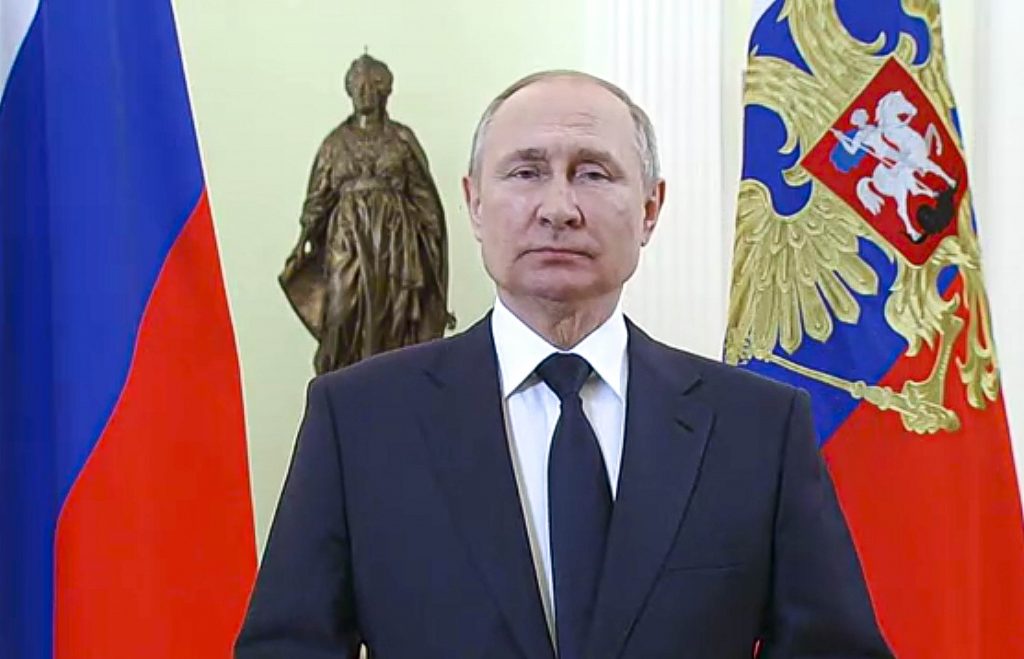S urrounded by decorated soldiers and mothers of fallen soldiers, Russia’s Vladimir Putin announced that he will run for President again in March 2024 but it came as no surprise to anyone. “I will not hide that I have had different thoughts at different times but it is now time to make a decision. I will run for the post of president,” Putin told the gathering of soldiers who wanted him to contest for a record fifth term. According to the independent pollster Levada Center, Putin has about 80 per cent approval rating among Russians.
Whether this support comes from the heart or reflects submission to a despot known for his ruthless crackdown on the slightest opposition, remains unanswered. Whatever the case, Putin is unlikely to face any opposition during the vote. All of us recollect the short-lived rebellion he faced from the mercenary leader Yevgeny Prigozhin.
Though it led to widespread speculation that Putin could be losing his grip, he came out unscathed. Prigozhin’s death in a mysterious plane crash two months later reinforced the view that Putin is absolutely at the helm. Putin has twice used his influence to amend the constitution to ensure he could stay in power until he’s in his mid-80s. He is already the longest-serving Kremlin leader since the Soviet dictator Josef Stalin. In 2008, he withdrew from the presidency to become prime minister due to the term limits but continued to call the shots while his close aide Dmitry Medvedev served as a rubberstamp president. Presidential terms were then extended to six years from four. Another bundle of amendments pushed by Putin during the COVID-19 pandemic in 2020 stipulated that the count for two consecutive presidential terms will begin in 2024.
As regards the challenges Putin faces, after close to two years of war, Russia’s forces control a mere sixth of Ukrainian territory, while the conflict has turned into a war of attrition. Putin appears to believe that time will be on his side in case Donald Trump returns to the White House in next year’s US presidential polls as the latter is expected to put a freeze on US funds and arms supply to Kyiv. Putin may likewise lead the war into a ‘frozen conflict’ in which Russia would attempt to keep Ukraine in a stranglehold by possessing the south and east of the country endlessly. Putin’s decision to invade Ukraine badly affected his ties with the West. The White House mocked his announcement that he would run for re-election in 2024, suggesting that the result was anybody’s guess. “Well, that’s going to be one humdinger of a horse race, isn’t it?” National Security Council spokesman John Kirby told reporters when asked about Putin’s attempt to extend his decades-long hold on power.
In the meanwhile, Putin has moved closer to China and India as part of a drive to dismantle the ‘unipolar world’ order dominated by the US and build what he calls a ‘multipolar world.’ Besides, he is also cultivating relations with the Middle East, Africa, and Latin America. On the economic front, Putin faces a Herculean task of bringing his country out of the turmoil he has put Russia into. In the wake of Western sanctions and European Union restrictions on technology, Russia’s economic output fell by 2.1 per cent last year, and is officially forecast to expand by 2.8 per cent this year.
However, the growth is mostly due to heavy government spending on war-related sectors. The freefall of the ruble, which has lost a third of its value this year, has led to spiralling inflation, forcing the Russian Central Bank to raise the key interest rate to a whopping 15 per cent. No matter what the economic conditions of the masses, authoritarian leaders always whip up nationalist sentiments to garner popular support. That’s exactly what Sergei Markov, a former Kremlin adviser, means when he says: “Putin is going to the polls as a military leader of a country at war.” By agreeing with soldiers, Putin managed to establish that he will be indispensable as Russia engaged the West in its biggest confrontation since the Cuban missile crisis of 1962.
